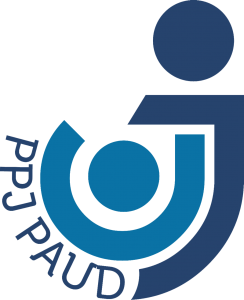Pengaruh Permainan Air Akuatik (Aquatic) Terhadap Kemampuan Berpikir Kritis Anak Usia 5-6 Tahun
Abstract
This study focuses on answering the question of whether there is an influence of aquatic water games on the critical thinking skills of children aged 5-6 years in one of the kindergarten schools (TK) in Pohuwato Regency. The research method used is quantitative pre-experimental experiment (on-group pretest-posttest design). The sample in this study was 15 children in class B. The results of the study showed that the average pre-test value was 19.06 with a standard deviation of 3.5550 and the average post-test value was 35.06 with a standard deviation of 1.3870. These results prove that there is a significant influence before and after treatment. Based on the hypothesis testing that has been carried out through the t-test, it shows that the sig. (2-tailed) value is obtained, namely the t-count value of 20.6559 and the t-table value at the 0.05 real level is 2.145. So t-count> t-table then H0 is rejected or H1 is accepted. This means that there is an influence of aquatic water games on critical thinking skills in children aged 5-6 years
References
Alfath, A. I., Maulana, F., & Nugraheni, W. (2023). Permainan Akuatik Untuk Meningkatkan Sistema Respirasi. Jurnal Educatio FKIP UNMA, 9(1), 48-53.
Amir, M. (2011). Rahasia mengajar dengan kreatif, inspiratif, dan cerdas. Logika Galileo.
Arsini, N. W., & Sutriyanti, N. K. (2020). Internalisasi nilai pendidikan karakter hindu pada anak usia dini. Yayasan Gandhi Puri.
Ayu, A. S., & Ardiansyah, A. S. (2023, August). Telaah Buku Ajar Matematika Dengan Model Challenge Based Learning Bernuansa STEM Berbantuan Kahoot! Terhadap Kemampuan Berpikir Kritis. In Prosiding Seminar Nasional Matematika dan Statistika (Vol. 3, No. 01, pp. 161-168).
Dianah, N. R., & Satiningsih, S. (2014). Pengaruh Penerapan Model Pembelajaran Kooperatif Tipe Think-Pair-Sahre Terhadap Kemampuan Mengenal Bentuk Geometri Anak Kelompok B Di Tk Muslimat Nu 182 Al-Arief Klampok Benjeng Gresik. Jurnal, UNESA.
Hafina, A., Nur, L., & Rusmana, N. (2019). Aquatic learning approach for improving early childhood basic attitude. Jurnal Pendidikan Jasmani dan Olahraga, 4(1), 86-91.
Hernawan, H., Widiastuti, W., Timur, A. I., & Pradityana, K. (2018). Pengembangan Model Pengenalan Air untuk Anak Usia Dini. Jurnal Pendidikan Usia Dini, 12(2), 251-260.
Herminastiti, R. (2019). Peran kegiatan fun cooking dan country project dalam kemampuan matematika awal dan berpikir kritis anak usia dini. KINDERGARTEN: Journal of Islamic Early Childhood Education, 2(1), 6-14.
Nur, L., Hafina, A., & Rusmana, N. (2020). Kemampuan kognitif anak usia dini dalam pembelajaran akuatik. Scholaria: Jurnal Pendidikan Dan Kebudayaan, 10(1), 42-50.
Putri, M. A., Wulandari, C., & Febriastuti, A. R. (2021). Implementasi pendekatan pembelajaran STEAM berbahan loose part dalam mengembangkan ketrampilan abad 21 pada anak usia dini. ABNA: Journal of Islamic Early Childhood Education, 2(2), 118-130.
Rahmasari, T., Pudyaningtyas, A. R., & Nurjanah, N. E. (2021). Profil Kemampuan Berpikir Kritis Anak Usia 5-6 Tahun. Kumara Cendekia, 9(1), 41-48.
Sugiyono, D. (2013). Metode penelitian pendidikan pendekatan kuantitatif, kualitatif dan R&D.
Suryana, D. (2016). Pendidikan anak usia dini: stimulasi & aspek perkembangan anak. Prenada Media.
Susanto, E. (2009). Pembelajaran Akuatik Bagi Siswa Pra Sekolah. Jurnal FIK UNY, 285-290.
Syafrudin, U., & Anisa, A. N. (2023). Pengaruh Model Pembelajaran Inkuiri terhadap Kemampuan Berpikir Kritis Anak 5-6 Tahun. Jambura Early Childhood Education Journal, 5(1), 93-104.
Yuliarti, Y., Sari, R. P., & Asnawati, A. (2023). Upaya meningkatkan kemampuan berfikir kritis pada anak B menggunakan media gambar seri. Early Childhood Research and Practice, 4(01), 27-32.
Copyright (c) 2025 Metalia Tantu, Nunung Suryana Jamin, Waode Eti Hardiyanti

This work is licensed under a Creative Commons Attribution-ShareAlike 4.0 International License.






